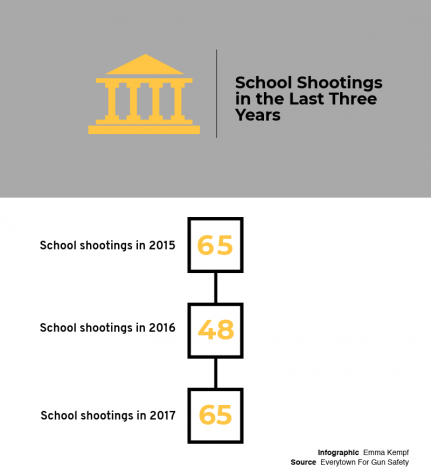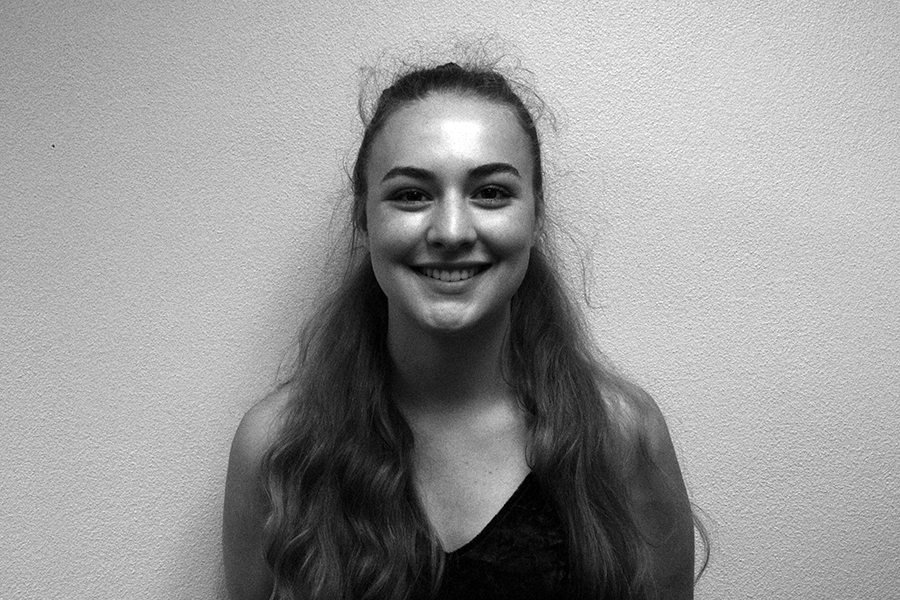Gun control stalemate desensitizes shootings
Push for regulation must continue to prevent future shootings
February 16, 2018
On Jan. 23, a student in Kentucky shot and killed two people at Marshall County High School and injured eighteen others.
The event marked the eleventh school shooting of 2018 and roughly the 50th of the academic year, according to the New York Times.
I was surprised I had not known about the first ten shootings and was even more surprised no one else seemed to know or seemed to care.
And then, on Wednesday Feb. 14, 17 people were murdered in a shooting at a high school in Parkland, Florida. A former student of the high school fired a semi-automatic AR-15 in the school, a rifle which he bought legally.
After mass shootings, there are always large stories on national news and hashtag prayers on social media, but no action takes place to remedy the violence caused by guns. The inaction results in silence until another mass shooting triggers more hashtag prayers and the cycle repeats itself. Nothing ever seems to get done to prevent gun violence.
School shootings have become a desensitized issue and, in effect, have normalized the issues surrounding gun control.
The public became numb to these shootings, not because they are so common, but because the push for gun control ground to a halt on the state and federal level.
The Trump administration, which has seen atrocities like the First Baptist Church shooting in Texas that killed 26 people, and the Las Vegas shooting that killed 58 people and injured an additional 851, has redirected the question of gun control to one of mental health.
President Trump responded to the Texas shooting saying, “Mental health is your problem here (…) based on preliminary reports, this was a very deranged individual.”

Blaming mass shootings on mental illness is a simple way to wave the issue of gun control. In fact, according to National Public Radio (NPR), people suffering from mental health issues are no more likely to become violent than the average person.
Furthermore, President Trump has impeded federal aid for patients suffering from mental health issues. According to NPR, the president repealed an Obama administration policy blocking gun sales to some people with mental health diagnosis soon after entering office.
When the federal government is incapable or unwilling to take action, local government must step in. When local government does not take action, the conversation stops and the violence resulting from a lack of gun control becomes desensitized.
State law has not matched the gun control issue. According to Business Insider, private sellers are allowed to sell guns without performing any kind of background check, state or federal, in 39 states.
Shootings become more dangerous with political deadlock on the question of gun control because they can continue to occur unchecked and therefore become a normal occurrence.
According to a report issued by the Government Accountability Office in 2016, two-thirds of school districts reported they staged active shooter exercises. It is unfair to ignore the question of gun control if schools feel they must drill the possibility of a shooter.
Gun control must be debated and adopted to ensure a safer educational environment.




